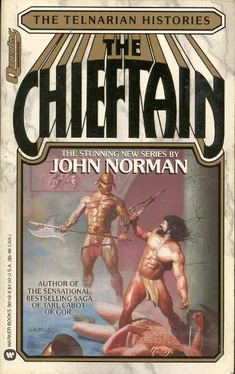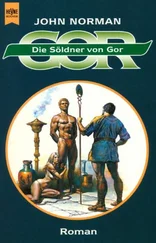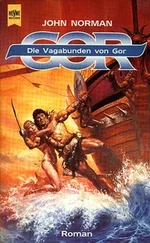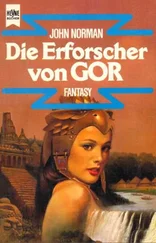Those times, you see, were not the same as now. You may judge them as you wish, for that is the prerogative of each age. Be advised, of course, that you, too, in future ages, may be judged, as well. Will you be convinced that you were wrong? But it is not my role to judge, but merely to relate. As I have indicated, my task is an unambitious one, a simple one, merely to tell what happened.
Hunlaki, a horseman, a warrior of the tents of the Heruls, was at this time a member of the rear guard. It had not been so three weeks before. At that time he had been one of the first who, at night, testing the ice on the Lothar, had taken his horse across, in a place hidden by trees, and a bend in the river. The raid itself had taken several days. The many clusters of cabins, the small wooden huts of the villagers, had been encircled, one by one, that none might escape to warn others. The territory had been scouted earlier by Hageen merchants, welcomed by the men and women of the villages. To be sure, as is always the case, some had eluded the nets of the horsemen, doubtless men returning to the villages, finding them burned, the occupants slain, or missing. The claw prints of the horses of the Heruls, the marks of blades on timbers, an occasional arrow in the soil, the marks on the bodies, the unmistakable print of the stones, the parts of bodies, the impaled bodies, made things clear enough. Indeed, perhaps the Heruls, in their roving patrols, dark against the snow, had been noted, the conical helmets, the furred cloaks.
Most of the villages near the edges of the forests, west of the Lothar, had been found deserted. The villagers had vanished into the forests. Neither the Heruls, nor the Hageen, would follow them into the forests. On the other hand, some of the villages near the edges of the forests, west of the Lothar, had been defended, or, perhaps one should say, certain high grounds, certain dirt hills, held as keeps, surrounded by a palisade, had been defended. One digs a deep ditch about a small hill and adds to the hill the dirt from the excavation. One surmounts the hill with a palisade. In such a way a tiny fort is constructed. The hill makes it difficult for the horses, and the foot, to gain a footing. At such times and places the Heruls would content themselves with burning the village. Heruls did not engage when it was not to their advantage.
Hunlaki had looked back at the Lothar. His leggings and boots were wet. He had, with the others, swum his horse back to the east bank. The ice, you see, had broken in the recrossing some days ago. Hunlaki’s beast itself had had the ice break beneath it, and it had howled in fear, clawing and scratching at the gigantic, suddenly sloping plate of ice, unable to gain purchase. Then it had slipped backwards, and, twisting, had fallen to its side in the icy water. Hunlaki had almost lost his seat. Then, rolling with the beast, rising dripping from the water, he had struck it savagely about the snout. Thusly, by inflicting sharp pain upon it, by recalling it to itself, did he calm its panic, did he reassert his control of the mount. Then, blood from the beast’s nostrils trailing in the water as it swam, he gained the opposite bank. That had been a terrible crossing for the captives. Many had crossed on the ice, it breaking under them. Many of them had been drowned. Others had been swum at the stirrups of captors, ropes on their necks. Others drew themselves across on a rope stretched from bank to bank. Horsemen moved about in the water downstream to slay any who might lose their grip on the rope. The foot of the Heruls formed for themselves, and for certain forms of loot, rafts, from the charred timbers of the riverside villages. Some prisoners, too, were permitted to cling to these rafts in passage. Some of the younger and more attractive women were put on these rafts bound, for the Heruls, recognizing their value, did not wish to risk them in the current.
The column had its vanguard, of course, and its rear guard, in which Hunlaki now had his place. It also had its flankers, as would be expected. A moment may be spent in mentioning the practices of the Heruls in such matters. These remarks serve, in effect, for the arrangements for the defense of the column. Long ago the Heruls, a nomadic people, had noted the seemingly uncanny ability of certain large, broad-winged scavengers to locate weakened, isolated animals on the plains, a lost flock animal, a lame herd animal, a wounded man, such things. Within minutes there would be one such unwelcome visitant in the sky, and then, a little later, three or four, and then, yet later, eight or ten, and then, in a few minutes, several. It was gradually understood that the birds, with their keen eyesight, which could detect the scurrying of the dab from a distance of more than a mile, patrolled given territories, patrolled them from a great height, one which brought more than a quarter of a latimeasure within view. These birds also were spaced in such a way that a given bird could just detect the position of the adjacent birds in their own, respective territories. When one bird left its position other birds, noting this, and perhaps curious, moved toward its position, and other birds, shortly thereafter, toward the newly vacated positions, and so on. In this way a large number of birds, from diverse positions, from diverse directions, could come together quickly, assembling in the vicinity of a find. The aspect of this practice which much impressed the Heruls was the principle of regularized, predictable contact, and the absence of this contact constituting the signal for the initiation of the assemblage behavior. Elements of the Herul vanguard, flankers and rear guard then maintained regular contact with the column, riding long loops between the outriders, the point riders, and the column. The absence of a predictable contact then triggered a twofold response, one of the contact riders investigating, the other returning to the column, or to his next contact rider, to report the failure of the contact. In this way, in a short amount of time, the column was apprised of possible difficulties with the outriders. In this way, the elimination of, say, a point rider, of a small squadron, to take a simple case, was not likely to expose the main force to the danger of a surprise attack. This is most effective, of course, in open country, of the sort favored by the Heruls. This practice is not unknown among certain other tent peoples as well, for example, their allies, the Hageen. We shall refer to the broad-winged scavengers, mentioned above, whose behaviors suggested these practices to the Heruls, as “vultures,” as the word will be a familiar one.
After the crossing of the Lothar, Hunlaki had turned his horse about, it shuddering and shaking the cold water from its fur. Such mounts did not care for water. The east bank was a sea of mud now. There were cries of misery, grunts, the sounds of blows, as the prisoners were herded together. There were children among them, some clinging to mothers. Two men were slain at the edge of the water, one who had lifted his hand to fend a blow. Hunlaki considered one of the women on one of the rafts. She was half-naked. Her hands were tied behind her. Her ankles, too, were tied, a mere thong more than sufficient for the purpose. She looked away, not meeting his eyes. She was slender and well curved. Her skin was very white. Such looked well where they belonged, at the feet of warriors.
Then Hunlaki looked away from her, back across the river, where were the remains of one of the villages. The fallen timbers, those of sheds and cabins, charred, blackened from the flames, were now partly covered with snow. The remains of the village seemed very still, and very cold. They reminded Hunlaki of a woods in winter, where trees have fallen, of the edge of the great forest, where the Heruls had stopped. Snow, too, had drifted about the remains. Snow was falling even now, settling on the far bank, disappearing in the river.
Читать дальше












